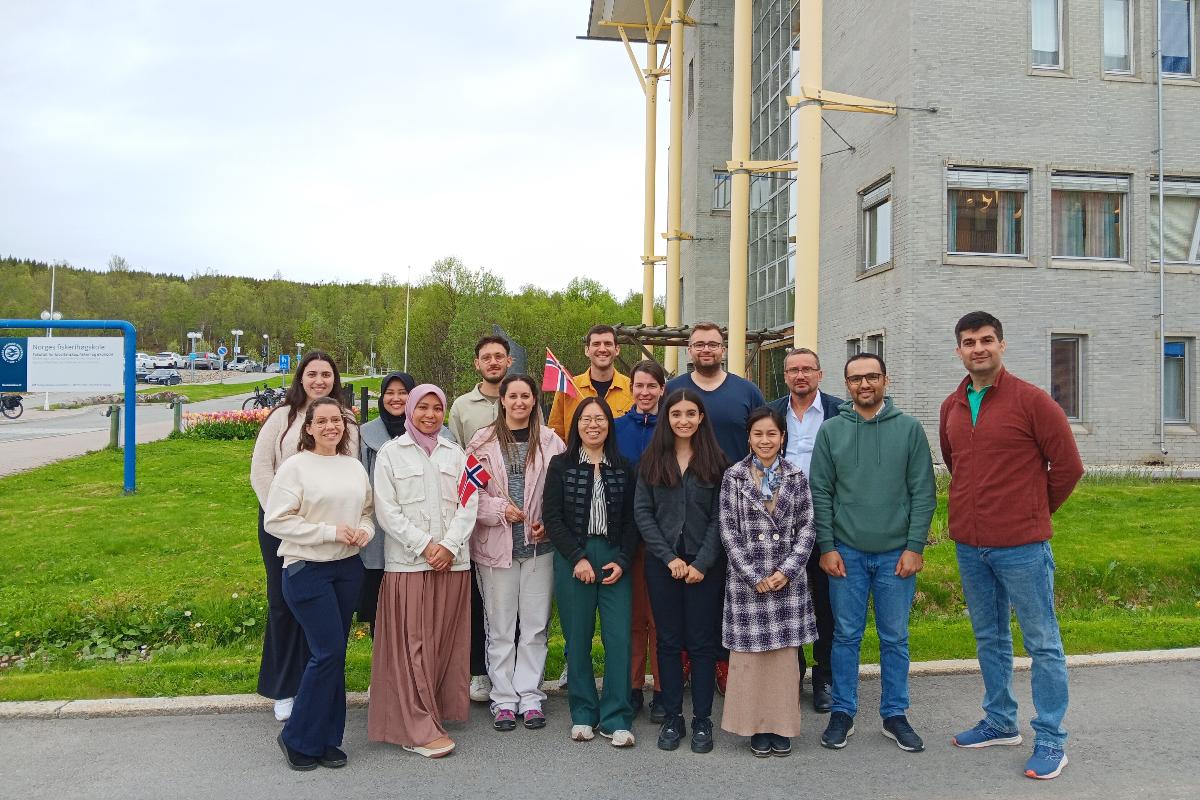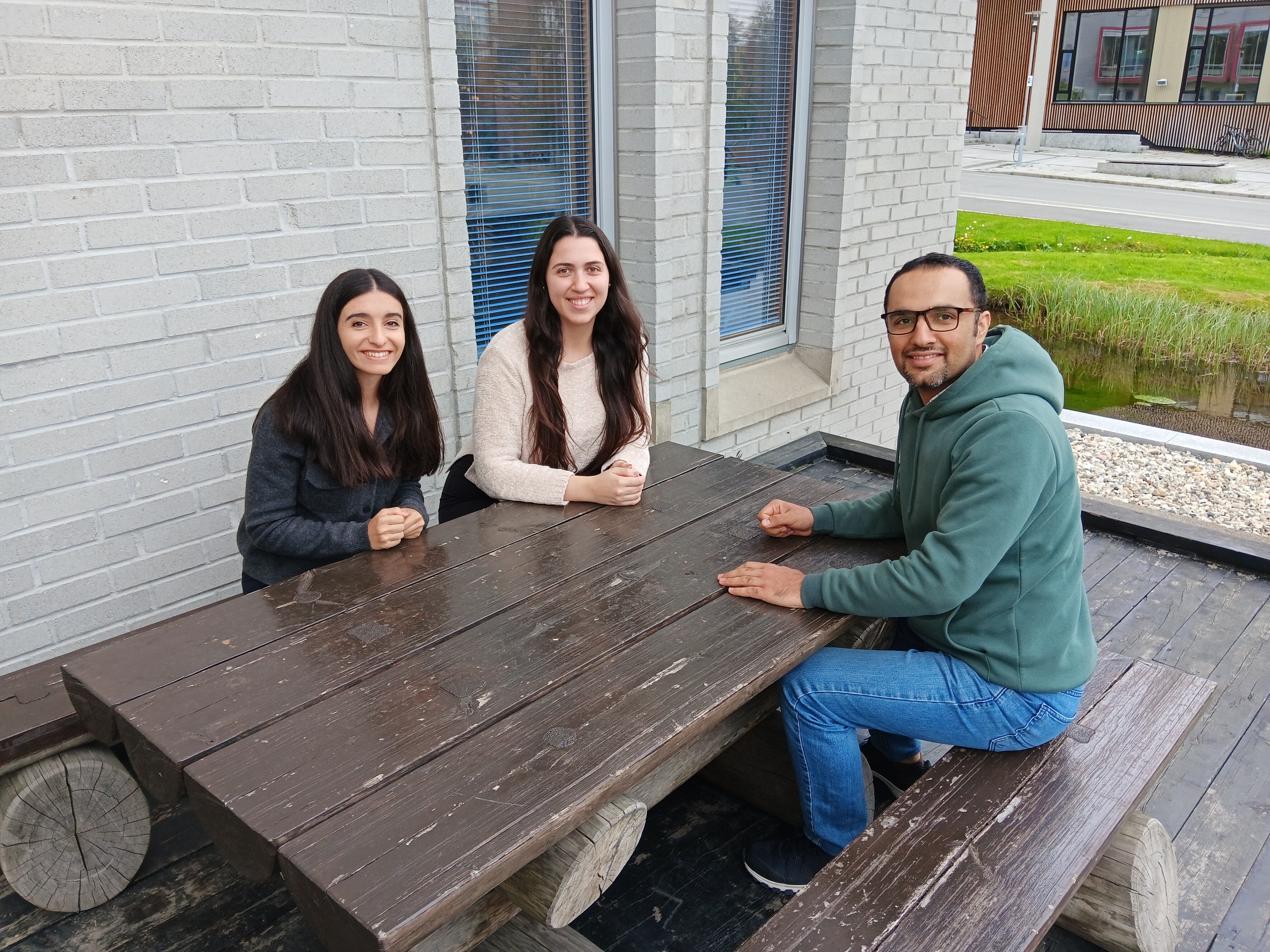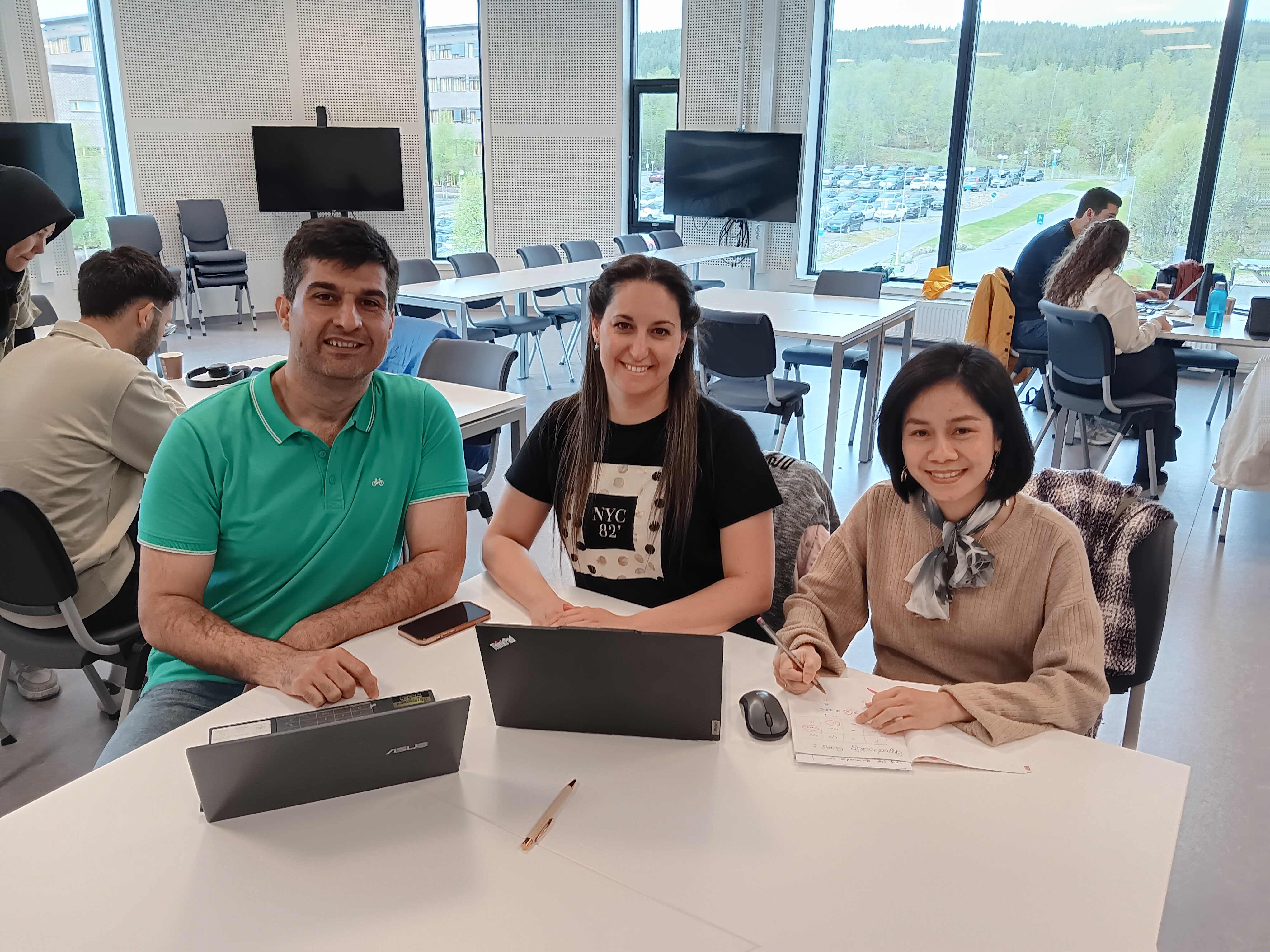New solutions for challenges in the Global South
This spring, UiT has organised a course in innovation and entrepreneurship for PhD candidates in the EUGLOH alliance. They have developed business ideas aimed at helping refugees and migrants and building sustainable local communities.

From February to June, UiT held a course on entrepreneurship and innovation for PhD candidates.
The 13 participants in the course came from several partner universities within the EUGLOH alliance, of which UiT is also a member.
During the course, participants had the opportunity to learn how to prepare for a career as entrepreneurs after completing their doctoral studies. The course focused on how innovation emerges and opportunities to commercialise research work.
The University of Porto, High North Academy, and Norinnova were co-organisers.
The PhD candidates' start-up ideas are based on challenges from their own lives and local communities. During the course, they have greatly benefited from becoming familiar with entrepreneurial ways of thinking.
But the course also had an additional dimension: the participants developed business ideas with innovative solutions to societal challenges in countries in the Global South.
Their concepts included online tools that could be useful for refugees and migrants from the Middle East, solutions for sustainable waste management in Indonesia, and curricula for mathematics education in Brazil.
Valuable experiences
The driving force behind the course was Associate Professor Yajie Liu from the Norwegian College of Fishery Science. She believes the PhD candidates gained valuable experience in translating research-based knowledge into action across multiple areas.
"The PhD candidates' start-up ideas are based on challenges from their own lives and local communities. During the course, they have greatly benefited from becoming familiar with entrepreneurial ways of thinking. This involves not only solving problems related to economic profit but also considering the environmental and social benefits created through innovation," says Liu.
She points out that, through the course, the participants have, among other things, improved their skills in networking, teamwork and project management.

App to assist refugees
One of the groups developed a concept for an app designed to benefit refugees from the Middle East. With this hypothetical app, they could adapt to new systems and societies. The app could be used for language learning, provide information about legal rights, offer guidance on where to find affordable and nutritious food, and access services related to mental health.
Esperança Marina Arujo Lima, a PhD candidate in psychology at the University of Porto, points out that the members in her group complemented each other in terms of their backgrounds and levels of expertise, while working on the app concept. The other two members of the group are PhD candidates in public health and linguistics.
"We have been challenged every day during the course. I know that this experience with innovation work will be important to carry forward in the future, whether I work in academia or the private sector, no matter where I am," says Lima.
For Lima, this is largely about applying research perspectives in new contexts, outside of academia.
"Research data often never leave the academic articles they are recorded in. Through commercial adaptation, we can translate research-based knowledge into something useful in the real world," she states.

Different perspectives on problem-solving
Another group developed a concept for a website where students and academics from the Middle East can easily find information about scholarship opportunities at European universities. Raquel García-Donas Guerrero, a PhD candidate at the University of Alcalá, was one of three contributors to the development of the concept.
"In our concept, we aim to highlight what the EU can offer them as they try to come to Europe to study."
Guerrero believes that having diverse cultural backgrounds has been a significant advantage in developing solutions that work across borders.
"All the bureaucracy you have to go through to apply for scholarships is something we see from a different perspective. In our project, we try to identify potential pitfalls that migrants might encounter and what they will face when they emigrate. Our solutions need to work in many countries," Guerrero points out.
We want to help them find a European scholarship in an easy way. Many students in Iraq have the wrong perception of how difficult it is to study in Europe.
A desire to help
One person who has personally experienced how difficult it is to find sufficient information is Sarkhel Akbar Mahmood, an Iraqi PhD candidate at the University of Szeged.
Facts about the EUGLOH course
- UiT hosted a course in innovation and entrepreneurship for PhD candidates.
- The course was held from 16 February to 6 June, concluding with an intensive week at UiT.
- The 13 participants came from three EUGLOH universities: the University of Alcalá (Spain), the University of Porto (Portugal), and the University of Szeged (Hungary).
- Half of the participants were from countries in the Middle East and the Global South.
- The participants developed business ideas aimed at providing solutions to societal challenges in countries in the Global South.
- The University of Porto and High North Academy were co-organisers.
- Norinnova delivered lectures, provided guidance, and facilitated discussions during the course.
"We want to help them find a European scholarship in an easy way. Many students in Iraq have the wrong perception of how difficult it is to study in Europe. We hear that it will be a challenge to live in European cities and that sometimes it is impossible to have a life there. They believe that everyone from the Middle East will be rejected," he says.
However, Mahmood has discovered, through challenges he has overcome himself, how inaccurate such perceptions are. Mahmood wants students and academics from the Middle East to have access to accurate and up-to-date information about scholarships and study opportunities.
"Many people from Iraq and Syria want to migrate to European cities and live there. At the same time, many lose their lives trying to do so. But if you are a master's student or a PhD candidate, you can find many opportunities. They can reside in a European city legally," Mahmood concludes.